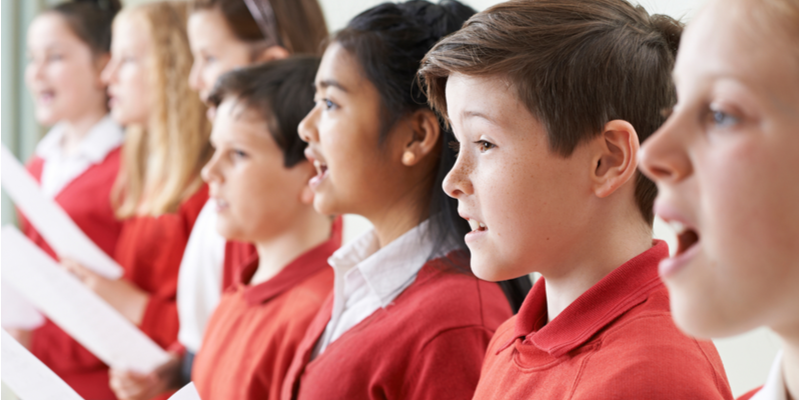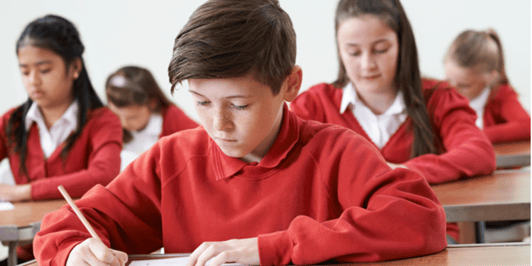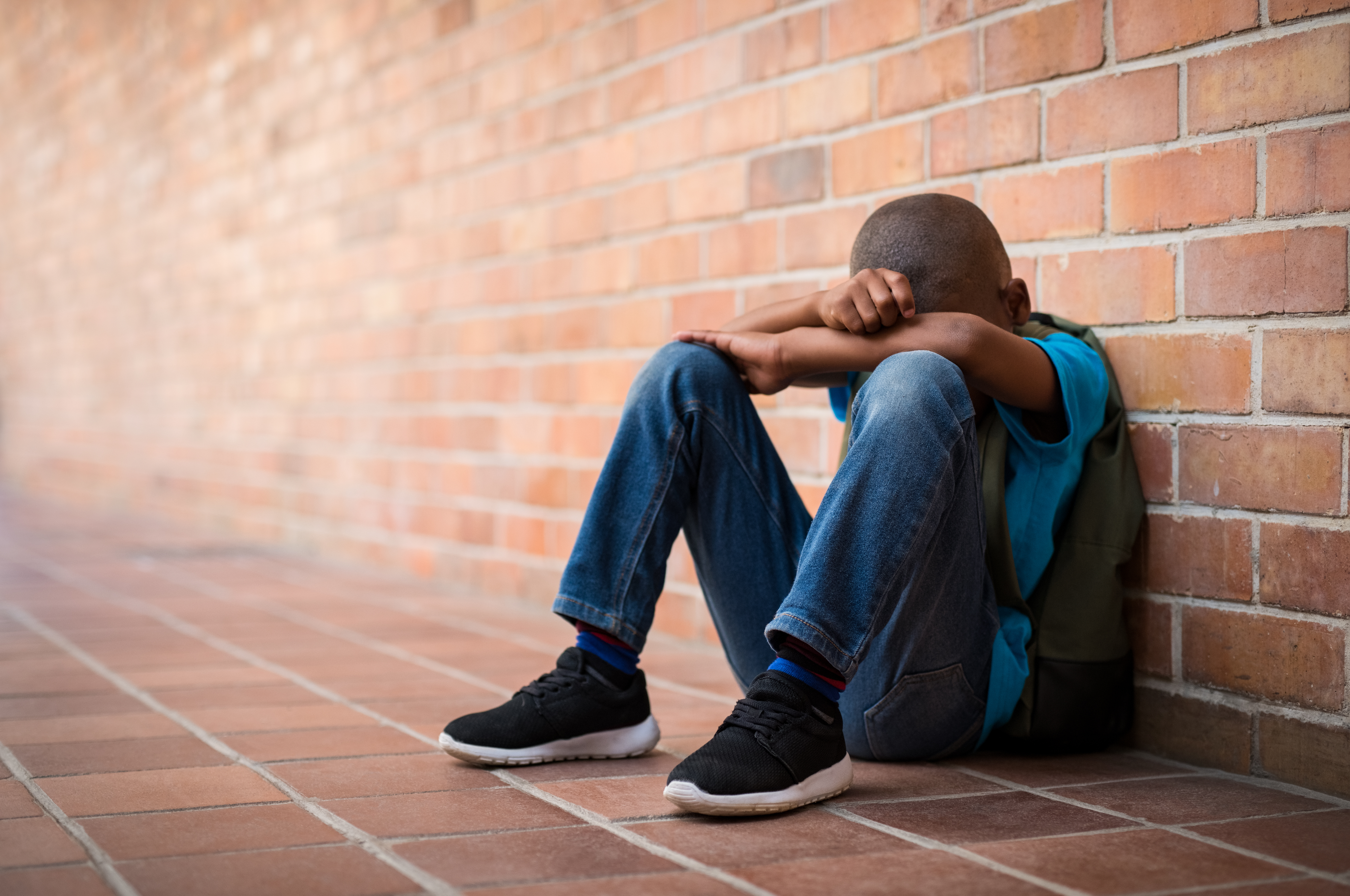Helping Children to Cope with Uncertainty
It’s a difficult time to be young. None of us could have anticipated a global pandemic quickly followed by the conflict in Eastern Europe, yet we’re expected to support our children through it. So how can we prepare them for these events and help them to protect their mental health?
As a parent, former teacher and head of Mable's counselling service, I’m used to supporting children through difficult times. In all three of these roles, I’ve given up trying to prepare them for every eventuality. Instead, I focus on arming them with enough resilience to cope when life gets tough.
What is resilience, and why is it important?

Resilience is being able to cope with adversity without suffering any long term negative outcomes. It comes from the Latin for rebound or recoil – so it’s literally the ability to bounce back. It can help to think of a resilient person as someone who has built up their psychological strength over time.
We need resilience because everyone suffers setbacks in their life. At some point we all face adversity, whether it’s bereavement, financial hardship or the breakdown of a relationship. How we cope in these moments will have a huge impact on our emotional wellbeing. Most of us will know people who seem to handle whatever life throws at them, and others who are less able to cope. The support we've had to become resilient plays an important part in managing adversity.
So how can we help children to develop resilience? Here’s my guide to giving them the skills to cope with whatever life throws at them.
Promote 'emotional literacy'
As a primary school teacher I worked with many pupils who’d learnt to read fluently, or learnt to spell accurately and thought they’d nailed literacy. But literacy isn't just the ability to read and write, that’s just the tools needed to enjoy language and express our ideas effectively. This is exactly the same for emotional literacy, but instead of ideas, it’s feelings. There are some children whose emotional language is as simple as happy and sad. Teaching them the basics is essential, but that isn’t all they need. Comprehending our feelings is a lifelong task. As adults we’re still working on it, so it’s essential we give children as many tools as possible to develop their emotional literacy.
A good way to help children develop their emotional literacy is to model it ourselves. If we’re frustrated, sad, angry or scared, then it helps if we verbalise how we’re feeling and - if we can - explain why. If they know we’re dealing with those emotions too, we’re showing it’s okay to have them, and that they can be overcome. If the child or young person does begin to open up, make sure you provide a safe space for them to do so. One where they know they won’t be judged or punished for being honest about how they’re feeling, even if sometimes, it might be difficult to hear.
Build their self-esteem

We all know how important self-esteem is, but how can we help children and young people to have it? The most helpful way we can do this is through the elimination of shame. Toxic shame, which is when we’re exposed to feelings of shame over a long period, is a neuro-toxin which poisons the body and stunts development. It can come from being ridiculed, embarrassed or ostracised, so it’s important that any time we need to speak to a child or young person about their behaviour, we do so in a sensitive and constructive way.
When disciplining a child it can be hard to contain our own frustration or anger, particularly when we really care about them. But keeping the conversation non-judgemental and resolution-focused is essential. Of course there will need to be consequences, but these need to be explained and enforced in a respectful way. Shame will never make a young person behave better; punishment may suppress an unwanted behaviour but it will not weaken it. This will only happen when an alternative behaviour is modelled, and the child is rewarded for doing it. Catching them being good and letting them know you’ve noticed, will go a long way in building their self-esteem.
Learn the '7 Cs of resilience'
In his book Building Resilience in Children and Teens, Kenneth Ginsburg breaks resilience down into 7 categories, which I often think about when I’m working with children and young people. They’re a really helpful way to spot if a child lacks resilience, and in which area they need my support.
Competence

This is the ability to perform tasks well. If a child feels incompetent they will doubt their abilities and their inner-monologue will say ‘I can’t do this’. This may be because they’ve had experiences of toxic shame or they’ve had a trauma that they were powerless to stop. Children struggling with competence may refuse to engage with independent tasks or try new things, and the idea of this may make them emotional.
Confidence
Confidence is something a child develops from regularly succeeding, and receiving praise and encouragement for their efforts. Without this praise, they’ll have very little confidence in themselves. So that inner monologue of 'I can’t do this' is there with this one too. Some children may be high achievers and therefore very competent, but may still be self-critical and could be described as perfectionists. These children are not okay with failure, and an essential part of confidence is knowing that it’s okay to fail. For these children, modelling and praising failure is an important part of their development.

Character
Building character is the focus of Paul Tough’s book How Children Succeed. He argues that character is what makes people likeable and therefore, more likely to succeed, making it just as important as academic skills. It’s a sense of humour, kindness, charm and also determination. All of these things come from a sense of optimism: seeing negatives as temporary and positives as the norm. By modelling empathy, morality and independent thought, we give children the chance to feel optimistic. The vulnerable children here might be the ones who try to imitate their peers, or act in a way they think other people want them to. This is obviously a normal part of growing up for all young people, but those who find it hard to have their own opinions or interests, may need support developing their strength of character.
Contribution
Children who struggle with a contribution may act selfishly, let people down and won’t seem to care if they inconvenience others. This is because they haven’t learnt the importance of recognising the needs of other people. Whether it’s volunteering, taking part in community activities or simply making socially conscious choices, being given the chance to contribute can be hugely empowering for them. It will give them a sense of belonging and value in the world, which will again, build their self-esteem.
Coping
For some children, understanding the difference between manageable and unmanageable stress can be challenging. A simple task or a tricky piece of school work may fill them with the same levels of fear and adrenaline as if there was a truck hurtling towards them. They may appear to act out or break down at the smallest difficulty. Modelling positive strategies for coping with stress, and breaking problems into manageable steps, will help them to face challenges more confidently.
Control
For those children acting out or breaking down, this one is really hard. If children feel out of control, then they will feel a sense of panic or despair. Children who feel they have no control may see no point in attempting a challenge, or will expect adults to take over the minute things get difficult. Helping them to see the positive impact of their actions, and rewarding acts of independence, will give them a sense of personal control.
 And finally...
And finally...
We’ve spent a lot of time looking at the psychological steps needed to build resilience, but promoting physical wellbeing is just as important. Good sleep hygiene, a healthy diet and a balanced online life will make children more able to cope with adversity and build their resilience. The world is a scary place right now, so it’s important we try to balance that with positive experiences. This way, children and young people will see that the dark times won’t last forever, and we will get through this.
If you’re thinking of a child who is struggling with their resilience or self-esteem, they may benefit from seeing one of Mable’s children and young people’s counsellors. Get in touch to find out more.
Exerts of this blog have been taken from Helen’s Mable Academy Course - Building Emotional Literacy and Resilience in Children
- General mental health (32)
- Counselling (25)
- Anxiety (11)
- Generalised anxiety (10)
- Depression (7)
- Anger (4)
- Relationship Issues (4)
- Self-Harm (4)
- Suicidal Thoughts (4)
- Autism (3)
- Classroom Behaviour (3)
- Eating Disorders (3)
- Eating Issues (3)
- Loss (3)
- Phobias (3)
- Safeguarding (3)
- School Issues (3)
- LGBTQ+ (2)
- SEMH (2)
- SENCOs (2)
- Secondary & Sixth Form Schools (2)
- AAC (1)
- Absenteeism (1)
- Autism Support (1)
- Looked After/Adopted (1)
- OCD (1)
- Primary Schools (1)
- Social Communication (1)
- Trauma (1)
You may also like
These related stories

The impact of loneliness during childhood and how to offer support

Supporting students to overcome anxiety: an interview with Kemi Omijeh

